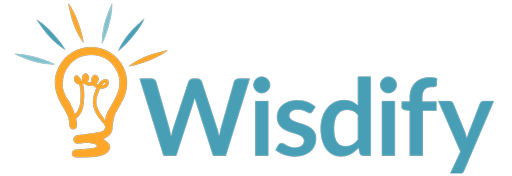Having a strong mentor is key to professional success. A mentor can give you vital guidance, insight into a company’s culture and exposure to career opportunities. They can also help you think more strategically and give feedback on your goals. A good mentor inspires you, pushes you to be better, and gives honest yet constructive feedback.
So how do you go about finding your mentor? The truth is, there isn’t just “the one.” People can – and should – have many mentoring relationships. These will differ by formality, duration, purpose, and the perspective that each mentor provides.
Here are some tips to help you find, build, and nourish mentoring relationships that will enrich your professional development.
Assess your needs
Different types of people will be better mentors for you depending on your needs and where you are in your career. So before you start looking for a mentor, take time to reflect on your professional experiences and goals. Do you have a sense of where you want to be in 5 years? If so, someone who has navigated that career path already can better help you get there.
Also, think about the kinds of guidance you want. Do you need advice that is specific to your field? Do you need guidance on how to work with a difficult manager or how to advance within your company? Do you want someone who can help you identify your strengths and career options? Do you respond well to people who give blunt, constructive criticism?
Determining what you need will help you know where to look for mentors to meet those needs. You may discover you want advice from senior leaders within your team. Or perhaps someone within your company, but outside of your team. Or someone within your industry but outside of your company. Or even someone in an entirely different industry.
Expand your network
Don’t go up to the most successful person you can think of and ask them to be your mentor out of the blue. People are more likely to devote time to your professional development if they know and like you. So build professional relationships. Get to know potential mentors. Have meaningful conversations with colleagues, joining professional organizations, and making friends. Look at your network from a mentoring point of view and begin to strengthen the connections you have with people you would like to get advice from.
Identify potential mentors
Ok, you know what kind of mentoring you need and have started making professional connections. Now narrow down on specific people you are interested in as mentors. Look for people who:
- Have the experience, expertise, and connections that can help you meet your goals. For example, someone in a position that you want to achieve.
- You trust and can be honest with. It’s helpful to you know a potential mentor so that you are comfortable speaking with them.
- Can communicate well and give helpful feedback. People respond differently to different communication styles. Look for someone you can work well with.
- Are interested in your development. You want someone who has shown interest in guiding you or gave you helpful feedback in the past. They will likely be better mentors than someone who is successful but self-focused.
- Impress or inspire you. Otherwise, why would you trust their advice?
Build mentoring relationships
As you get to know potential mentors, mentoring relationships will often begin to develop naturally as a result. To encourage that process, you should:
- Be proactive: There are some cases you may be assigned a mentor at work/school. Even rarer, someone may freely offer their guidance. But, more often than not, you’ll need to take the initiative in driving the relationship.
- Attract mentors: A potential mentor will be more interested in devoting time to your development if you are investing in your own development. Do good work, prove your skills, ask for more responsibilities, and show a desire to learn. By conveying an interest in someone’s expertise, they’ll often be willing to help – or point you towards someone else who can.
- Create mentoring opportunities: Seek guidance from potential mentors. Set up a meeting or go out to lunch with someone you admire to ask for advice and learn about his or her career. This will help you determine if someone is a good fit for you as a mentor and establish a base to further build your mentoring relationship.
- Ask for further mentorship: If you enjoyed past mentoring experiences with someone, continue to seek them out when you need guidance. Ask if they’d be willing to continue having conversations with you to discuss your goals and their advice. Let them know what you hope to learn from them. You don’t need to ask, “Will you be my mentor?” This is usually too formal and may put too much pressure on the mentor.
- Clarify expectations: Be clear about what you are asking for and talk about what the mentor is comfortable with. “Mentoring” can mean a variety of things, such as informal chats when you need advice or more structured support to groom you for a position. If you want more formal or intensive mentoring, be sure to communicate that up front. Discuss how often you would like to meet and how to best communicate.
How formal your relationship is depends on many variables. These include your needs, the mentor’s availability, company culture, and your personalities. Whether someone is “officially” your mentor isn’t as important as whether you are getting the guidance you need and the relationship is productive.
Nurture the relationship
Once you have a mentoring relationship with someone, you need to nurture it.
- Be accountable and considerate: Lead your development process by scheduling and managing meetings with your mentor. And come to those meetings prepared. Don’t harass your mentor by reaching out too frequently or waste their time by asking questions you could answer from a Google search.
- Show appreciation: Thank your mentor for their time, use their advice, and let them know about your results. They’ll enjoy learning how their time has helped you. You can further show your gratitude by paying it forward and passing on insights you’ve learned as a mentor to someone else.
Add value to the relationship
A mentor-mentee relationship should be mutually beneficial, so find ways to give back to your mentor. Connect them to people, teach them skills that you have, forward interesting articles, congratulate them on their successes, support their work, offer your perspective, and continue the relationship after you have achieved your goals.
Relationships go both ways and the more you put in, the more you will get out of it. So be respectful, be awesome and good luck!



